Secretary’s Report Highlights IAD’s Growth and Shift from Mission Recipients to Mission Contributors
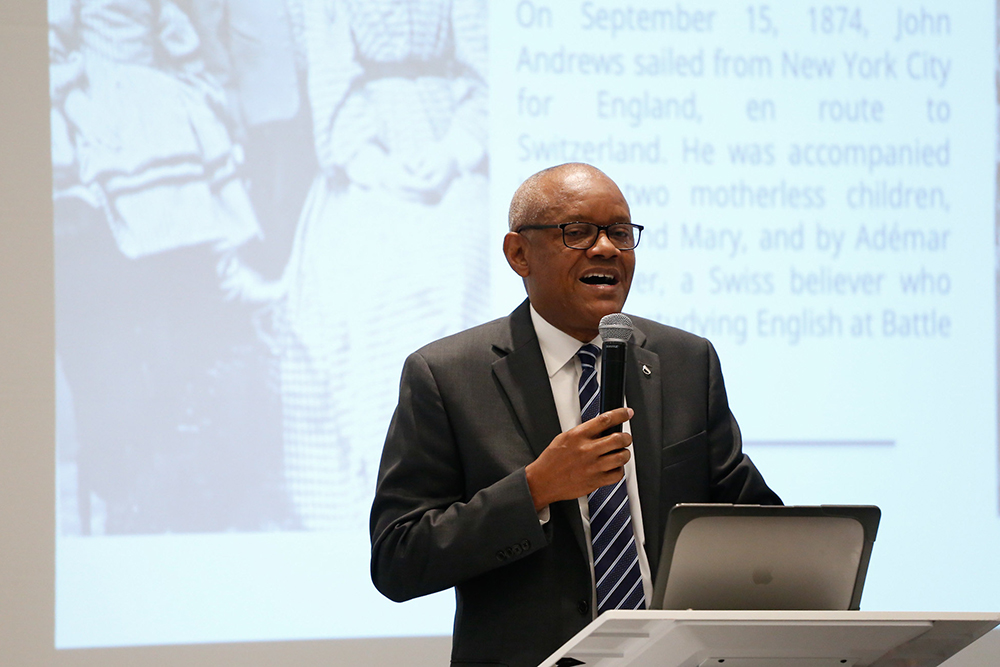
Inter-American Division Executive Secretary eonard Johnson presents his report during the first day of Year-End Eecutive Committee meetings in Monterrey, Nuevo León, mexico, on Nov. 11, 2024. [Photo: Libna Stevens/IAD]
November 13, 2024 | Monterrey, Nuevo León, Mexico | Libna Stevens, Inter-American Division News
“The year 1874 marked a significant event in the life of the Seventh-day Adventist Church, when on Sept. 15, John N. Andrews sailed to England en route to Switzerland—an initiative that would prove to be fundamental and pivotal for the Inter-American Division,” said Pastor Leonard Johnson, executive secretary of the IAD, as he began his year-end report to executive committee members on Nov. 10, 2024.
“One hundred and fifty years later, we convene our IAD Executive Committee business meetings, mindful of that missionary accomplishment that has impacted and continues to impact the division and its growth,” he said.
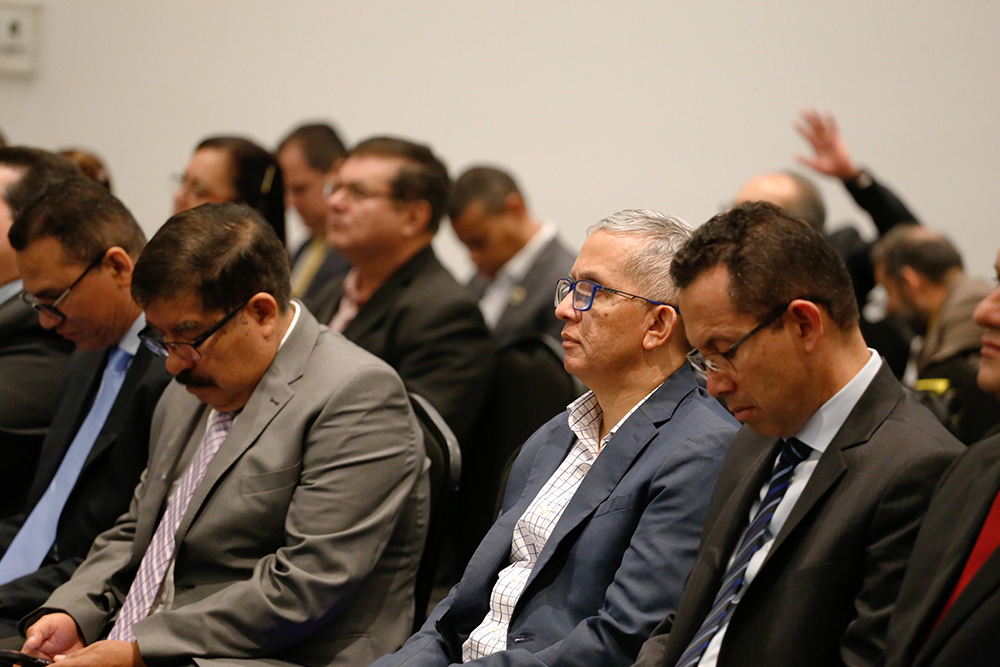
Union and institution administrators listen to the secretary’s report during the first day of the year-end business meetings, on Nov. 10, 2024.[Photo: Libna Stevens/IAD]
From 1883 onward, the IAD was a recipient of missionaries, starting with leaders who led the region from 1922 when it was officially organized, including the first president Elmer E. Andross (1922–1936); Grant A. Roberts (1936–1941); Glenn A. Calkins (1941–1947 and 1951–1954); Earl F. Hackman (1948–1951); Arthur H. Roth (1954–1962); and C. L. Powers (1962–1970), Johnson pointed out. In 1966, Bender L. Archbold, from the Colombian Island of Providencia, was elected as secretary of the IAD.
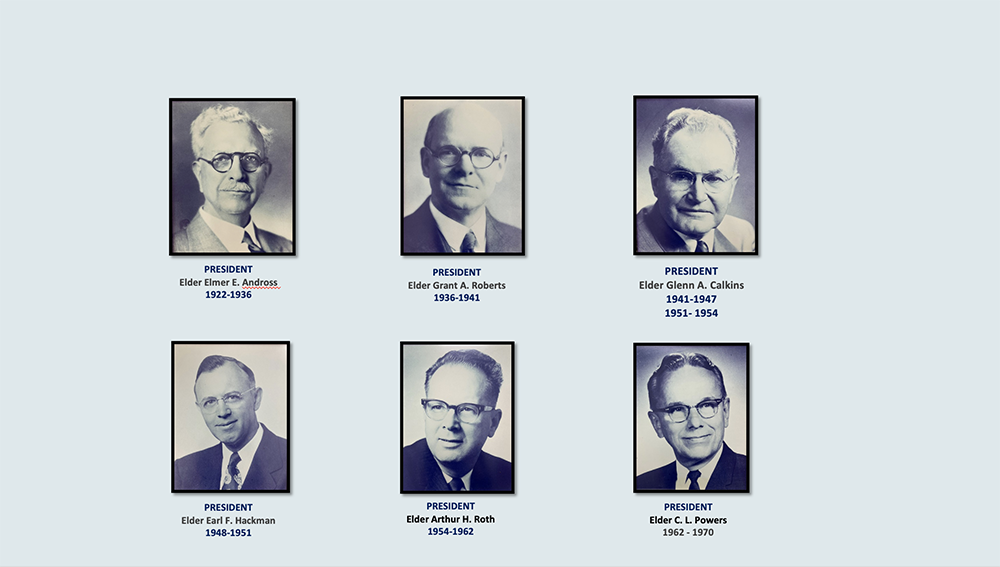
Presidents of the inter-American Division from 1922 to 1970. [IAD File photo]
At the end of Archbold’s term in 1980, the membership had almost doubled to 646,969, Johnson noted, paying special tribute to the service of Bender L. Archbold, who served for over 46 years in the church and who passed away in 2006 at the age of 98.
Under the leadership of Israel Leito, who served as president from 1994 to 2018, the division’s membership grew to 3.7 million. Now, with Elie Henry at the helm, the division is moving toward 4 million members.

Bender L. Archbold became the first native Inter-American to become president of the IAD in 1970. [IAD File photo]
Growth and Mission
Against this historical backdrop, Johnson presented his year-end Secretary’s Report, highlighting growth statistics and facts as of the second quarter of 2024.
“When we see numbers, we see stories, we see messages—powerful information that, when understood and shared, can motivate and encourage God’s people for a deeper commitment to the mission,” said Johnson.
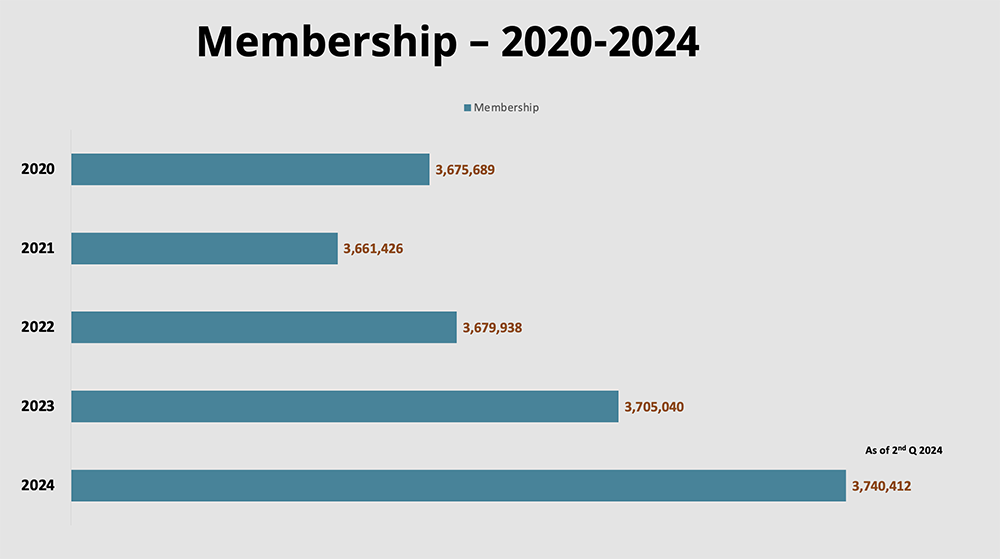
Membership figures from 2020 to 2024. [Photo: Leonard Johnson/IAD]
The average pastor in the IAD oversees 1,156 members and 7.7 churches.
A total of 114,178 members were added in the second quarter of 2024, while 78,806 members were subtracted due to factors such as transfers, deaths, dropped members, and other adjustments, resulting in a net gain of 35,372 members. “We are not doing as well in retention, but it is my hope that we can improve this,” said Johnson. Efforts in the Secretariat include working with pastors and church clerks to correct discrepancies in local church records, he added.
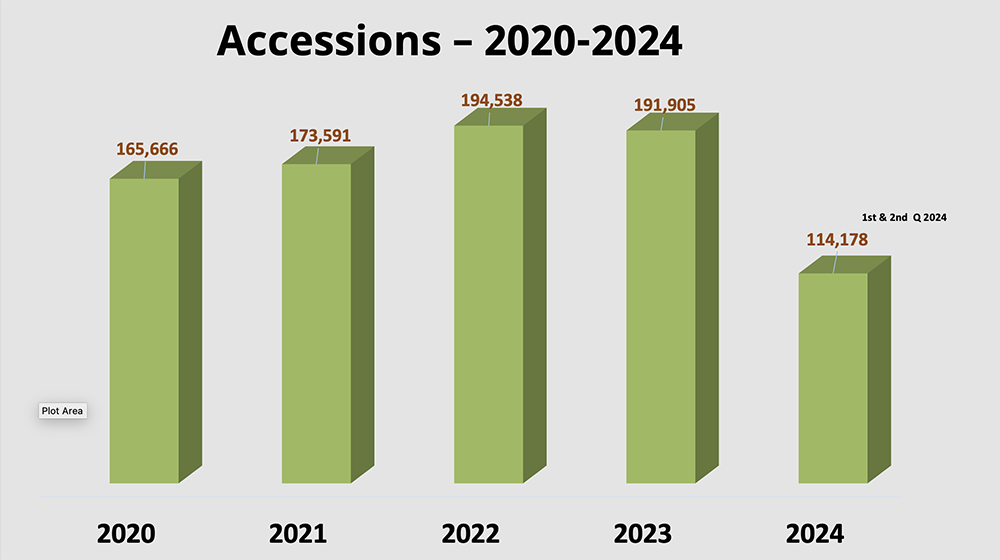
[Photo: Leonard Johnson/IAD]
Union Highlights
Among the unions with the highest membership are the Haitian Union with 506,370 members, the Jamaican Union 343,907 members, and the Dominican Union with 328,473 members. “We thank you for the part you have played in growing the church across the IAD, and we are grateful to God for what has been accomplished,” said Johnson.
Churches and companies continue to grow, but there has been a decrease in the number of pastors, from 3,916 to 3,235—a loss of 681. “This presents a challenge for the pastors who remain to provide leadership and shepherd the flock,” said Johnson.
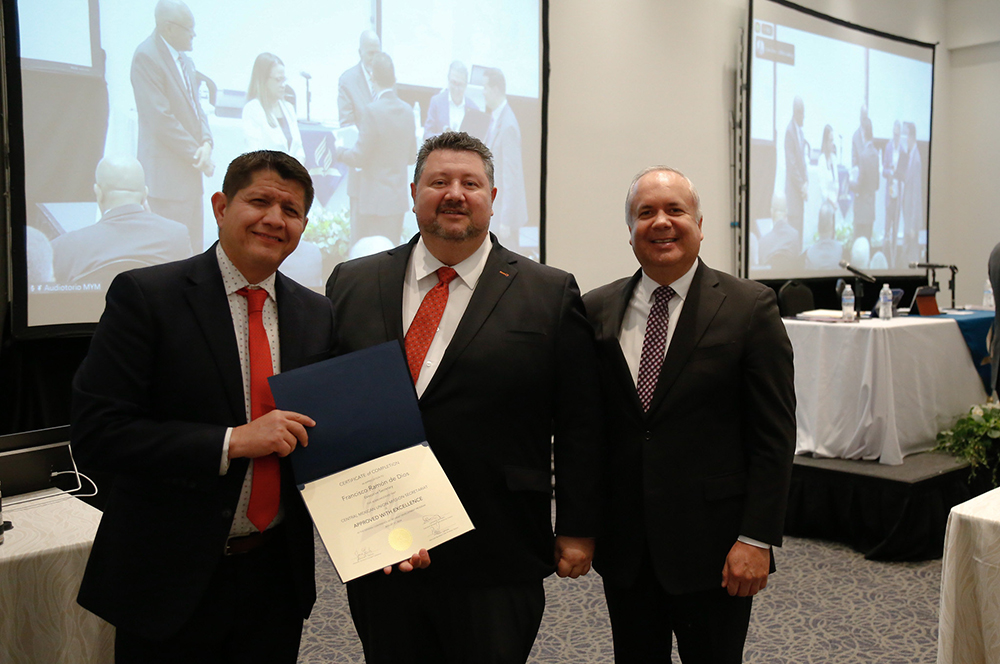
Administrators of the Central Mexican Union were given a certificate of completion after completing leadership training this year.[Photo: Libna Stevens/IAD]
“We are fully involved in a mission refocus to the world, but we also have a mission within the IAD,” Johnson emphasized. “We reach out beyond our borders, but we must continue to look inside and bridge the gaps in our own territory.”
The Secretariat department is not only focusing on progress but also on addressing issues through leadership training led by the General Conference and across the different unions within the IAD.
There are 24 International Service Employees (ISEs) from the IAD serving around the world, and 12 ISEs from the world church serving in the IAD territory, Johnson reported. Additionally, there are eight volunteers serving globally and two volunteers in the IAD territory. In 2024, the Secretariat processed 3,225 service requests.
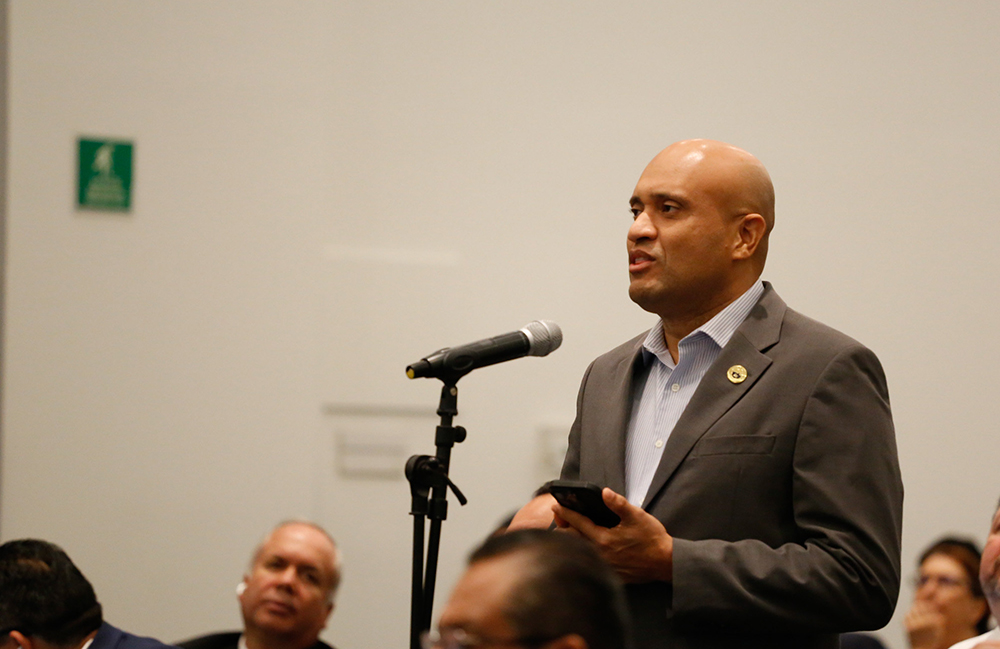
Teófilo Silvestre, president of the Dominican Union speaks after the secretary’s report. [Photo: Libna Stevens/IAD]
Teófilo Silvestre, president of the Dominican Union, praised Johnson for his transparency in presenting the report. “This is a model of transparency for our union to follow,” he said. “I think it would be good for us to take the challenge to surpass the 200,000 new members we’ve been trying to reach as a division for some time. I’m not sure how many world divisions have more than 24,000 churches, but there is strength in those congregations, and perhaps we could strengthen our retention initiatives and have an aggressive, intentional plan to plant more new churches.”
“A great percentage of the plans we do have to do with consolidating the members, but this consolidation has to be more intentional, more direct,” said Abraham Sandoval, president of the Inter-Oceanic Mexican Union. “The division office used to have a vice president who dealt with member retention and helped a lot because unions and local fields also had retention leaders. I would like to suggest the leadership consider reintroducing that retention role to help follow up closely on member retention.”
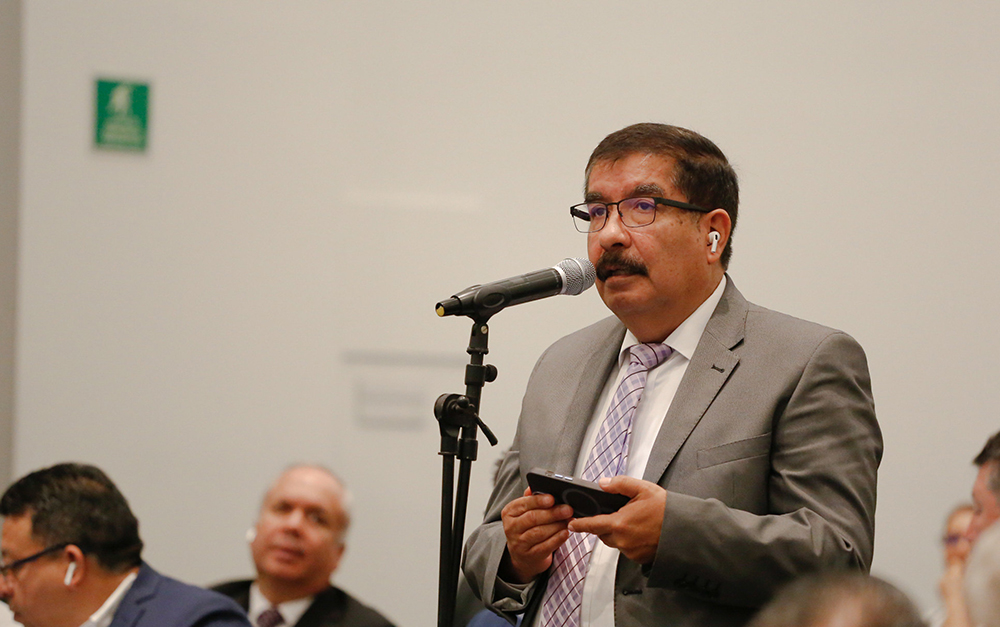
Abraham Sandoval, president of the Inter-Oceanic Mexican Union, addresses IAD administrators on appointing a leader in charge of member retention at the division office.[Photo: Libna Stevens/IAD]
“There seems to be a kind of hemorrhage of pastors when we look at the numbers,” said Pastor Efraín Velázquez, president of the Inter-American Adventist Theological Seminary (IATS). “We’ve been preparing pastors at IATS, but many leave. We should think strategically about how to provide pathways for other interested individuals, including offering other master’s degrees as an expansion of training.”
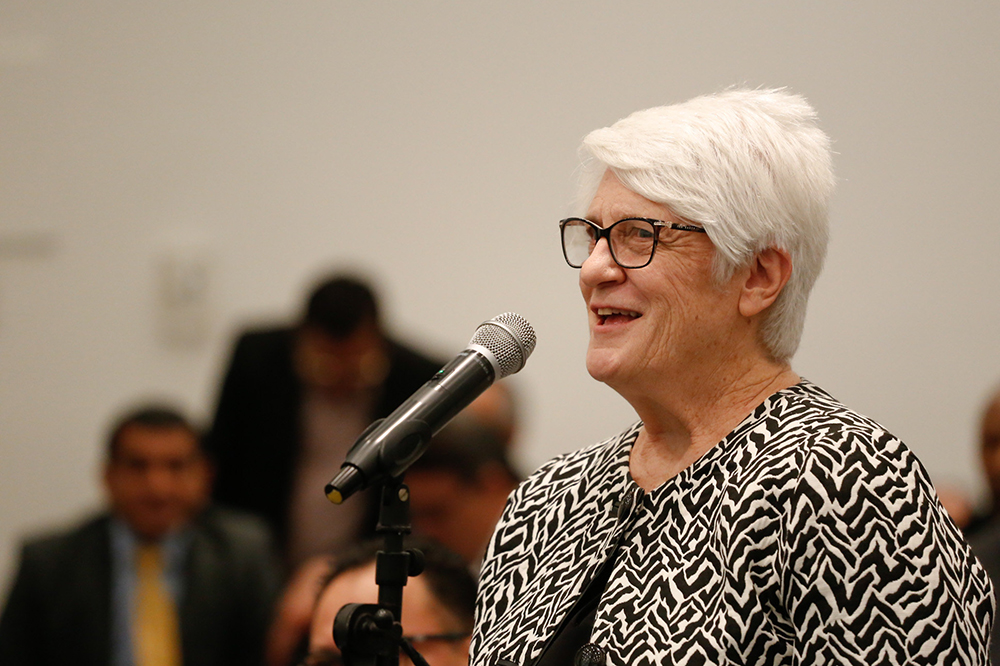
Karen Porter, associate secretary of the General Conference, praises the secretary’s report for thorough growth numbers and mission refocus efforts. [Photo: Libna Stevens/IAD]
Karen Porter, General Conference associate secretary, thanked Johnson for his thorough report. “This isn’t just information; this is information we need to examine, because each statistic represents an individual. The report highlights deficiencies and areas for growth, such as retention,” Porter said.
“You’re not the only division facing challenges with retention. This is an area where we all need to refocus,” she added. She also praised the IAD for its shift from being a recipient of mission to a contributor to mission. “I encourage you to continue sending missionaries, supporting them, and ensuring their transition home is complete with a place to return to. I really appreciate your mission-focused report.”